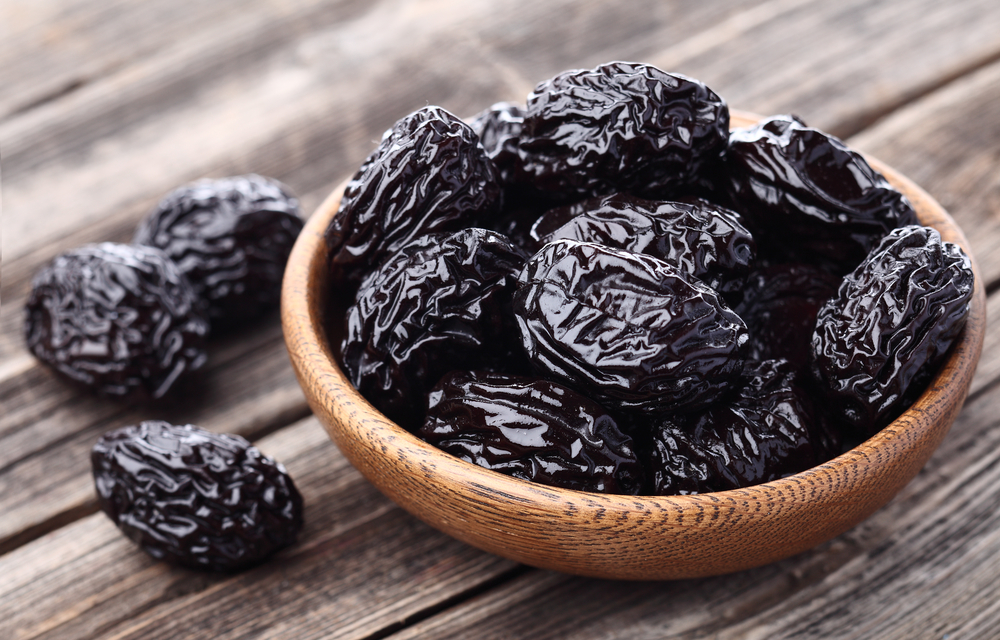by Annette Pinder
A new study of postmenopausal women reveals that daily consumption of nutrient-rich prunes may increase bone health and lower inflammatory factors that cause osteoporosis. About 13.6 million Americans over age 50 will develop osteoporosis by 2030. Osteoporosis is a loss of bone strength due to decreased bone mineral density, leading to an increase in fractures. This is especially true for postmenopausal women who have reduced estrogen levels resulting in increased body inflammation, which contributes to bone loss.
Scientists already knew that polyphenol extracts in prunes help reduce oxidative stress levels and inflammation in a type of bone cell called osteoclasts. The new study conducted by the Integrative and Biomedical Physiology Program and Departments of Nutritional Sciences and Kinesiology at The Pennsylvania State University, examined the effects of prunes on bone health after menopause.
The study divided postmenopausal women with a low bone mineral density score into three groups. One group ate 50 grams of prunes (about six prunes) daily for 12 months. A second group ate 100 grams of prunes (about 12 prunes) daily for 12 months. A control group did not eat any prunes. Blood samples taken from all participants before and after the trial showed significant reductions in inflammation in both of the prune-eating groups compared to the control group.
Janhavi Damani, MS, first author of the study, said, “Our findings suggest that consumption of six to 12 prunes per day may reduce pro-inflammatory mediators that may contribute to bone loss in postmenopausal women. Thus, prunes might be a promising nutritional intervention to prevent the rise in inflammatory mediators often observed as part of the aging process.”
Learn more about the study at https://tinyurl.com/5fp9n5b8.












